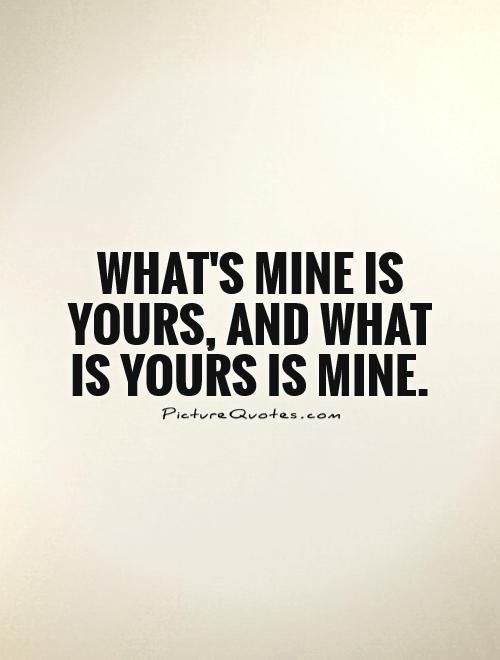What's mine is yours, and what is yours is mine

What's mine is yours, and what is yours is mine
The phrase "What's mine is yours, and what is yours is mine" is a common sentiment that reflects the idea of sharing and mutual ownership. In the context of William Shakespeare's works, this concept can be seen in various forms, particularly in his plays that explore themes of love, friendship, and loyalty.One of the most famous examples of this idea in Shakespeare's works is found in the play "Romeo and Juliet." In this tragic love story, Romeo and Juliet declare their love for each other with the famous lines, "My bounty is as boundless as the sea, / My love as deep; the more I give to thee, / The more I have, for both are infinite." This sentiment reflects the idea that love knows no bounds and that by giving to each other, they only strengthen their bond.
Similarly, in "The Merchant of Venice," the character Antonio demonstrates his willingness to sacrifice his own wealth and well-being for his friend Bassanio. When Bassanio asks Antonio for a loan to woo the wealthy heiress Portia, Antonio readily agrees, saying, "My purse, my person, my extremest means / Lie all unlocked to your occasions." This selfless act of generosity exemplifies the idea that true friendship involves sharing not only material possessions but also one's own self.












 Friendship Quotes
Friendship Quotes Love Quotes
Love Quotes Life Quotes
Life Quotes Funny Quotes
Funny Quotes Motivational Quotes
Motivational Quotes Inspirational Quotes
Inspirational Quotes